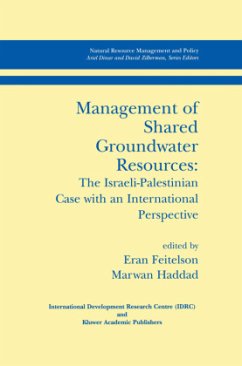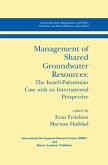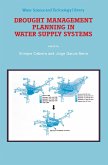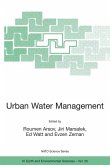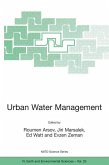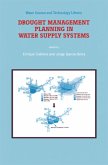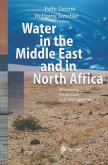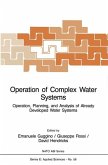Most of the world's freshwater resources in the liquid state (i.e. not in glaciers and polar caps) are underground. As the population grows and demand for water rises, reliance on groundwater increases. In many cases the groundwater underlies boundaries, or is part of a hydraulic system that crosses boundaries. In such cases there is always the danger that the 'prisoner's dilemma' will run its course and all parties will compete over who will pump the most water, ultimately destroying the storage potential to the detriment of future generations of all parties reliant on the groundwater. This book explores the options and means for averting this all too realistic scenario by managing these shared groundwater resources.
Nowhere is the likelihood of excessive use of groundwater greater than in the water-scarce Middle East, and especially in the Israeli-Palestinian case. Here both sides are heavily reliant on a shared aquifer, the Mountain aquifer. This book is the outcome of a seven-year effort to find ways to manage the Mountain aquifer, perhaps the most important resource shared by Israelis and Palestinians. As part of this cooperative study, four workshops were held in which a selected number of Palestinian, Israeli, and foreign experts were invited. The chapters in this book were originally presented in one of these workshops. To these papers introductory and concluding chapters were added.
Nowhere is the likelihood of excessive use of groundwater greater than in the water-scarce Middle East, and especially in the Israeli-Palestinian case. Here both sides are heavily reliant on a shared aquifer, the Mountain aquifer. This book is the outcome of a seven-year effort to find ways to manage the Mountain aquifer, perhaps the most important resource shared by Israelis and Palestinians. As part of this cooperative study, four workshops were held in which a selected number of Palestinian, Israeli, and foreign experts were invited. The chapters in this book were originally presented in one of these workshops. To these papers introductory and concluding chapters were added.
`This excellent book should be required reading for water experts and international relations specialists interested in the Middle East peace process.'
Natur Wissenschaften, 88:10 (2001)
Natur Wissenschaften, 88:10 (2001)
`This excellent book should be required reading for water experts and international relations specialists interested in the Middle East peace process.'
Natur Wissenschaften, 88:10 (2001)
Natur Wissenschaften, 88:10 (2001)

